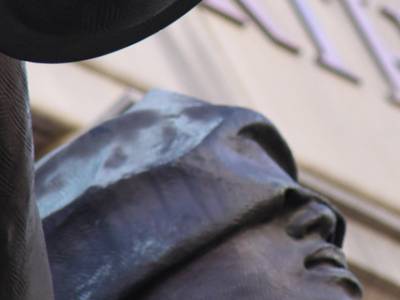Hi
I am a South African with the following qualifications:
1. Bachelor of Surgery, Bachelor of Medicine (MBChB) (undergraduate, 6 year, full-time, residence medical degree)
2. Master of Medicine (MMed) (Psychiatry) (postgraduate, 4 year, full-time, resident specialist Psychiatrist degree)
I am currently completing two LLB degrees:
1. University of South Africa (UNISA) LLB degree(undergraduate, 4 year, full-time, distance education LLB degree)
2. University of London External Programme LLB degree (undergraduate, 3 year, full-time, distance education LLB degree)
I would like to find out about my eligibility to sit any US State Bar exam. I am aware of some of the issues surrounding distance education and have viewed various of the US State Bar websites, but still remain thoroughly confused.
My specific questions:
1. Would I be eligible to sit any US Bar exam with the above qualifications?
2. If not, what would I have to do to become eligible?
2. If not, would an LLM from a US university ensure eligibility?
Many thanks in advance.
Marcel
US Bar Eligibility with UoL External LLB
Posted Sep 01, 2005 10:08
I am a South African with the following qualifications:
1. Bachelor of Surgery, Bachelor of Medicine (MBChB) (undergraduate, 6 year, full-time, residence medical degree)
2. Master of Medicine (MMed) (Psychiatry) (postgraduate, 4 year, full-time, resident specialist Psychiatrist degree)
I am currently completing two LLB degrees:
1. University of South Africa (UNISA) LLB degree(undergraduate, 4 year, full-time, distance education LLB degree)
2. University of London External Programme LLB degree (undergraduate, 3 year, full-time, distance education LLB degree)
I would like to find out about my eligibility to sit any US State Bar exam. I am aware of some of the issues surrounding distance education and have viewed various of the US State Bar websites, but still remain thoroughly confused.
My specific questions:
1. Would I be eligible to sit any US Bar exam with the above qualifications?
2. If not, what would I have to do to become eligible?
2. If not, would an LLM from a US university ensure eligibility?
Many thanks in advance.
Marcel
Posted Sep 01, 2005 16:20
I think no matter what you need an LLM from a US lawschool to sit for the bar. I am pretty sure that it's an absolute requirement regardless of your qualifications...it's only one year of school. If you satisfy the LLM program somewhere, then you can apply to sit for the Bar, and I think the Bar officers will have to decide whether you are qualified. But if you have no problems (e.g. crimes, convictions, fraud, financial problems, etc.) you should be fine.
Posted Sep 01, 2005 20:03
In some states you may take the bar with a 3-year LL.B. Take a look at this discussion:
http://www.llm-guide.com/board/120
http://www.llm-guide.com/board/120
Posted Nov 01, 2007 19:05
Hello everybody ,
I live in US and I am thinking of doing the LLB with UOL external program . Has anybody out there been through this process and is now practicing in the US . Also do I definitely need to do the LLM in order to the bar . Has anybody out there did the UOL LLB external program and went straight to do the bar without doing LLM ? I await your response
Thanks
DOW
I live in US and I am thinking of doing the LLB with UOL external program . Has anybody out there been through this process and is now practicing in the US . Also do I definitely need to do the LLM in order to the bar . Has anybody out there did the UOL LLB external program and went straight to do the bar without doing LLM ? I await your response
Thanks
DOW
Posted Nov 02, 2007 00:59
Whether you may take the bar will vary from state to state with the US. You should look at the websites of the individual state bars where you are interested in practicing. Some states require a legal degree from an American Bar Association accredited institution - e.g. JD or LLM. Other states will allow anyone to sit for and take the bar. In California, you can take the bar without attending an ABA institution. In fact an associate of mine has a legal degree from Oxford and is licensed to practice in California.
The real question becomes finding employment. If possible, find a position with a UK office of a firm that also has offices in the US. That will allow you to potentially transfer to a US office of that firm. It will also make you more desirable to similar large international firms. On occasion US law firms do hire foreign lawyers that are not licensed in the United States. For example my firm recently hired a lawyer from Mexico. She typically works on international transactions where knowledge of a foreign legal system may be helpful.
The real question becomes finding employment. If possible, find a position with a UK office of a firm that also has offices in the US. That will allow you to potentially transfer to a US office of that firm. It will also make you more desirable to similar large international firms. On occasion US law firms do hire foreign lawyers that are not licensed in the United States. For example my firm recently hired a lawyer from Mexico. She typically works on international transactions where knowledge of a foreign legal system may be helpful.
Posted Dec 02, 2007 18:21
I live in US and I am thinking of doing the LLB with UOL external program . Has anybody out there been through this process and is now practicing in the US . Also do I definitely need to do the LLM in order to the bar . Has anybody out there did the UOL LLB external program and went straight to do the bar without doing LLM ? I await your response
If you live in the US, and you're planning on studying four years' worth of courses (LLB and LLM), for god's sake just go to law school here in the US. It only takes three years, and it will give you a much better chance at good employment than what you're proposing. Many states will not let LLM holders sit the bar, let alone LLB holders. In contrast, ALL states let holders of US law degrees sit the bar.
If you live in the US, and you're planning on studying four years' worth of courses (LLB and LLM), for god's sake just go to law school here in the US. It only takes three years, and it will give you a much better chance at good employment than what you're proposing. Many states will not let LLM holders sit the bar, let alone LLB holders. In contrast, ALL states let holders of US law degrees sit the bar.
Posted Dec 10, 2007 03:54
The Online Law Schools book does say that you do need the 3 year LLB from overseas for CA to accept you besides the LLM, and I also checked with another bar site and I think most states want the 3 year programs. The book has other external programs overseas besides london like Nottingham Trent, Anglia, Demontfort, and Univ of New England in Australia, completely online and they offer the JD and LLB, you an choose. So anyone considering London or overseas, TAKE the 3 year LLB, you will be more safe, NY just changed their rules as they will accept the LLB if you went in person(texas also) but not the exteranl. But, I think with an LLM, they do allow you. Best option is to take the CA bar and then sit for other states ,and a prestigious foreign LLB is probably better than a Non ABA JD.
In some states you may take the bar with a 3-year LL.B. Take a look at this discussion:
http://www.llm-guide.com/board/120
<blockquote>In some states you may take the bar with a 3-year LL.B. Take a look at this discussion:
http://www.llm-guide.com/board/120</blockquote>
Posted Jun 12, 2008 04:05
There seems to be a general belief that admission to the bar in California opens all doors to legal practice in the U.S.
>
There are reasons why California's rules are so lenient - and why California allows that which virtually every other state prohibits. Before committing to California as a solution, PLEASE: ascertain that the state you want to practice in allows candidates to sit based on admission in California. Because in an awful lot of cases you're going to find yourself practicing in California for years before you're even eligible to sit for "other states".
Also: rules on sitting for bar exams based on LL.B degrees are changing very, very fast. Someone starting an LL.B program might finish only to find that the requirements in his/her chosen state had changed over the course of that one year; leaving him out in the cold! Example: In Connecticut candidates with LL.B degrees were always eligible to sit for the bar exam. As of January '08 that is no longer the case. Foreign applicants for Connecticut admission are now being considered on a case-by-case basis and U.S. applicants from non-accredited law schools are flatly ineligible for the Connecticut Bar - without exception. I believe this is also the case in Massachusetts. Bottom line: the trend is toward allowing ONLY those candidates with J.D.'s from ABA-accredited law schools to sit for bar exams.
>
There are reasons why California's rules are so lenient - and why California allows that which virtually every other state prohibits. Before committing to California as a solution, PLEASE: ascertain that the state you want to practice in allows candidates to sit based on admission in California. Because in an awful lot of cases you're going to find yourself practicing in California for years before you're even eligible to sit for "other states".
Also: rules on sitting for bar exams based on LL.B degrees are changing very, very fast. Someone starting an LL.B program might finish only to find that the requirements in his/her chosen state had changed over the course of that one year; leaving him out in the cold! Example: In Connecticut candidates with LL.B degrees were always eligible to sit for the bar exam. As of January '08 that is no longer the case. Foreign applicants for Connecticut admission are now being considered on a case-by-case basis and U.S. applicants from non-accredited law schools are flatly ineligible for the Connecticut Bar - without exception. I believe this is also the case in Massachusetts. Bottom line: the trend is toward allowing ONLY those candidates with J.D.'s from ABA-accredited law schools to sit for bar exams.
Posted Jun 23, 2008 21:15
Hey, I'm a LLB student in the UK and I would like to come America. I just got wind of New York and California allowing foreign educated candidates to sit the Bar. Now my question is in the UK we have to branches in the Legal Profession, one being a Solicitor (provider of legal advice) and Barrister (goes to court much like an Attorney in the USA), now I was wondering if there is a US equivalent to a Solicitor ?
Ed
Ed
Posted Jun 24, 2008 12:38
Hi Ed,
In US the profession is fused and lawyers are generally referred to as Attorneys-at-Law.
Cheers
Greg
In US the profession is fused and lawyers are generally referred to as Attorneys-at-Law.
Cheers
Greg
Posted Jul 17, 2008 18:51
Keep in mind that law firms will not hire you just because you passed the bar. My brother graduated from AU with an LLM and passed the NY bar in 2003 and although he was hired at the World Bank, law firms weren't really interested in hiriing him without a JD. Now I'm applying to LLM programs but considering a JD as well.
Posted Sep 03, 2008 23:36
Regarding admissions, in CA you need two years of undergraduate university experience plus an additional four years of legal education:
http://calbar.ca.gov/calbar/pdfs/admissions/sf_legal-edu-outside-us.pdf
I wouldn't count on state to state waiver laws as those change quickly as well. Further, count on the maximum required education as there's no guarantee that the rules will stay stable.
A good example is the UK, which just added a year's work experience in British law for any non-EU trained Common Law attorney wishing to sit for the Solicitor's exam.
For comprehensive U.S. bar admissions rules, please see the following (p. 30 covers foreign trained attorneys):
http://www.ncbex.org/uploads/user_docrepos/CompGuide_01.pdf
http://calbar.ca.gov/calbar/pdfs/admissions/sf_legal-edu-outside-us.pdf
I wouldn't count on state to state waiver laws as those change quickly as well. Further, count on the maximum required education as there's no guarantee that the rules will stay stable.
A good example is the UK, which just added a year's work experience in British law for any non-EU trained Common Law attorney wishing to sit for the Solicitor's exam.
For comprehensive U.S. bar admissions rules, please see the following (p. 30 covers foreign trained attorneys):
http://www.ncbex.org/uploads/user_docrepos/CompGuide_01.pdf
Posted Feb 01, 2009 15:12
Dow,
Wondering how it's going with the university of london external program? Have you found a us llm program that would accept you, as of yet.
Wondering how it's going with the university of london external program? Have you found a us llm program that would accept you, as of yet.
Posted Sep 15, 2009 00:21
Hello !
I was wondering if you could enroll in a JD program in the US with an LLB from England and how many years it would take you to get the JD when you already have the LLB.
Thank you
I was wondering if you could enroll in a JD program in the US with an LLB from England and how many years it would take you to get the JD when you already have the LLB.
Thank you
Posted Dec 10, 2009 18:07
If you have questions about bar eligibility in the US you can always contact www.barbri.com. Tennessee, Massachusetts as well as New York and one other state (I think Minnesota or Michigan) allow foreign trained qualified lawyers to sit the bar exam but I not sure how it works if you are not qualified already. BarBri can at least direct you.
Good luck.
Good luck.
Posted Jan 12, 2010 20:19
Bottomline -- Every state seems to be moving toward individual evaluation for Foreign trained lawyers. Based upon the inference that I have obtained from what I have found, if you are a U.S. Citizen and you want to do an external program, you not only need to pass with high marks, but you need to get licensed in that country before you would have a snowballs chance in [well you can fill in the blanks here] to obtain admittance to the bar outside of California. I expect that when it is all said and done, wit will be Texas or Illinois that leeds the charge away from this line of thinking and/or the ABA finally accrediting distance based learning programs, due in part to the technological inovations that will have to take place in trading financial markets and energy related endeavors [and of course, IP tort will follow]. What I do not understand is how the ABA believes that it is helping anyone long-term. Our world is going growing smaller, and international experience and know will be key as the world continues.
It is simply a travesty to the entire profession and the public at large that this protectionist mentality remains. And what's better about distance education -- tracking class participation. Forums, chat logs, and blackboard databases can do something that no professor can do by themselves -- achieve near 100% accuracy in tracking these statistics. I mention this because there is always the argument about class interaction and integrity of work. Every educator knows to start being suspicious when class participation efforts [as well as nuances like body language when called upon -- distinguishing the shy from the dis-interested.] do not match the work turned in. But if Law Schools were to take a queue from University of York's Mathematical Finance Program and digital require signature pads and finger print scanners combined with a minimum of one weekly live participation session -- all of those arguments go out the window. Typical, those digital extras can be had for a total of about $350 -- joila! Instant increase in accuracy. There are other, more educator-student relationship oriented benefits to these tools being used to collect data on students, but that is for another argument.
It is simply a travesty to the entire profession and the public at large that this protectionist mentality remains. And what's better about distance education -- tracking class participation. Forums, chat logs, and blackboard databases can do something that no professor can do by themselves -- achieve near 100% accuracy in tracking these statistics. I mention this because there is always the argument about class interaction and integrity of work. Every educator knows to start being suspicious when class participation efforts [as well as nuances like body language when called upon -- distinguishing the shy from the dis-interested.] do not match the work turned in. But if Law Schools were to take a queue from University of York's Mathematical Finance Program and digital require signature pads and finger print scanners combined with a minimum of one weekly live participation session -- all of those arguments go out the window. Typical, those digital extras can be had for a total of about $350 -- joila! Instant increase in accuracy. There are other, more educator-student relationship oriented benefits to these tools being used to collect data on students, but that is for another argument.
Posted Jul 09, 2010 19:10
Hi Californa Lawyer,
I am hoping that you can help me with some information as well. I have an LLB from Malawi. The Legal System there is based on English Common Law. I am currently working as a Paralegal in a foreclosure law firm here in the US. I desperately need to sit for the Bar and I applied to BOLE in New York. Since I haven' heard back yet, can you give me any info about job opportunities in CA for someone like me. Thanks so much!
I am hoping that you can help me with some information as well. I have an LLB from Malawi. The Legal System there is based on English Common Law. I am currently working as a Paralegal in a foreclosure law firm here in the US. I desperately need to sit for the Bar and I applied to BOLE in New York. Since I haven' heard back yet, can you give me any info about job opportunities in CA for someone like me. Thanks so much!
Related Law Schools
Other Related Content
US Bar Exam FAQ
Article May 01, 2009
Some practical info for foreign lawyers considering taking a US bar exam after the LL.M.
Hot Discussions
-
NUS LLM 2024-25 Cohort
Oct 25, 2024 5,857 34 -
MIDS - 2024-25
Nov 15 12:52 AM 1,837 16 -
Harvard LLM 2025-2026
Nov 20 09:34 PM 1,681 7 -
NUS LLM cohort 2025/26
Nov 17 05:40 PM 471 5 -
LL.M. Scholarship Rates?
Nov 09, 2024 2,503 5 -
EU citizen barred in the US -- will an LLM from an EU school help me practice law somewhere in the EU?
Nov 15 12:58 AM 137 4 -
NUS vs Peking
Nov 09, 2024 183 4 -
LLM in ADR
Oct 23, 2024 390 4




